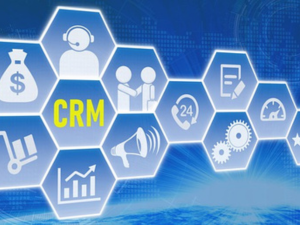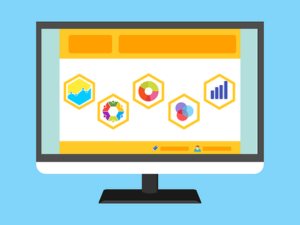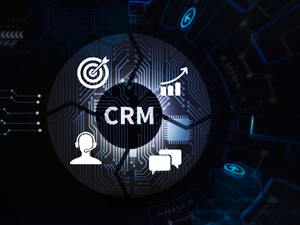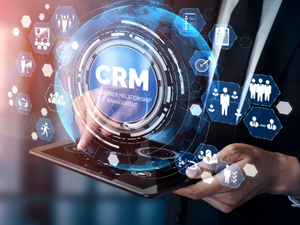 What is CRM?
What is CRM?
Ensuring your company stands out is more critical than ever. One proven method to achieve this is by implementing a Customer Relationship Management (CRM) system. By leveraging a CRM, you can significantly enhance customer satisfaction and streamline your business operations.
Top FAQ Questions:
-
What are the key benefits of using a CRM system for my business?
-
How can a CRM system improve customer satisfaction and retention?
-
What types of business tools can be integrated with a CRM system to maximize its effectiveness?
Track and Manage Customer Issues in One Place
One of the most significant advantages of a CRM system is its ability to consolidate customer information in a single, easily accessible location. This centralized repository allows your team to track and manage customer complaints, comments, and queries efficiently. Without a CRM, important customer details can get lost, leading to delays and frustration.
A CRM system ensures that all relevant customer data is updated and shared with stakeholders, facilitating timely responses to customer issues. When customers feel heard and valued, they are more likely to remain loyal to your business. This organized approach not only improves customer satisfaction but also enhances your team's productivity by minimizing the time spent on administrative tasks.
Provide Your Customers with Quick and Tailored Responses
In the age of instant gratification, customers expect prompt and personalized responses to their inquiries. Delayed responses can lead to customer dissatisfaction and a potential loss of business. A CRM system enables your team to address customer queries swiftly by providing a comprehensive view of each customer's history and preferences.
With all customer information in one place, your employees can quickly find the necessary details to respond effectively. Additionally, many CRM systems offer features such as email templates and automated response tools, further streamlining customer interactions. This not only saves time but also ensures consistency and professionalism in your communications.
Connecting CRM Systems with Other Tools
A CRM system is a powerful tool on its own, but its true potential is unlocked when integrated with other business tools. By connecting your CRM with ERP (enterprise resource planning) systems, marketing automation platforms, e-commerce solutions, and social media management tools, you can create a seamless and cohesive customer experience.
Integrating CRM with ERP Systems
ERP systems manage core business processes such as accounting, procurement, project management, and supply chain operations. Integrating your CRM with an ERP system ensures that customer data and business processes are synchronized, providing a holistic view of your operations. This integration helps streamline workflows, reduce manual data entry, and improve decision-making based on comprehensive data insights.
 Enhancing Marketing Efforts with CRM Integration
Enhancing Marketing Efforts with CRM Integration
Marketing automation platforms enable businesses to design, execute, and analyze marketing campaigns more efficiently. When integrated with a CRM, these platforms can use customer data to create highly targeted and personalized marketing efforts. This not only increases the effectiveness of your campaigns but also enhances customer engagement and loyalty.
Boosting E-commerce Operations
For businesses with an online presence, integrating a CRM with e-commerce platforms is essential. This integration allows you to track customer behavior, purchase history, and preferences, enabling you to offer personalized recommendations and promotions. By understanding your customers' needs and preferences, you can enhance their shopping experience and drive sales.
Managing Social Media Interactions
Social media has become a crucial channel for customer engagement. Integrating your CRM with social media management tools allows you to monitor and respond to customer interactions across various platforms. This ensures that no customer query or feedback goes unnoticed and helps you maintain a consistent brand presence online.
Let's Recap
Implementing a CRM system is a strategic move that can transform your business operations and elevate customer satisfaction. By centralizing customer information, enabling quick and tailored responses, and integrating with other business tools, a CRM system provides a comprehensive solution to enhance customer experiences and build lasting relationships.
Top FAQs and Answers
-
What are the key benefits of using a CRM system for my business?
A CRM system centralizes customer information, improves response times, and integrates with other business tools to enhance efficiency. It helps in managing customer interactions, tracking issues, and providing personalized services, leading to increased customer satisfaction and loyalty.
-
How can a CRM system improve customer satisfaction and retention?
By storing all customer information in one place, a CRM system allows for quick and personalized responses to customer queries. This timely and tailored approach makes customers feel valued and heard, increasing their likelihood of staying loyal to your business.
-
What types of business tools can be integrated with a CRM system to maximize its effectiveness?
CRM systems can be integrated with ERP systems, marketing automation platforms, e-commerce solutions, and social media management tools. These integrations streamline operations, enhance marketing efforts, improve e-commerce experiences, and manage social media interactions effectively, providing a seamless customer experience.
